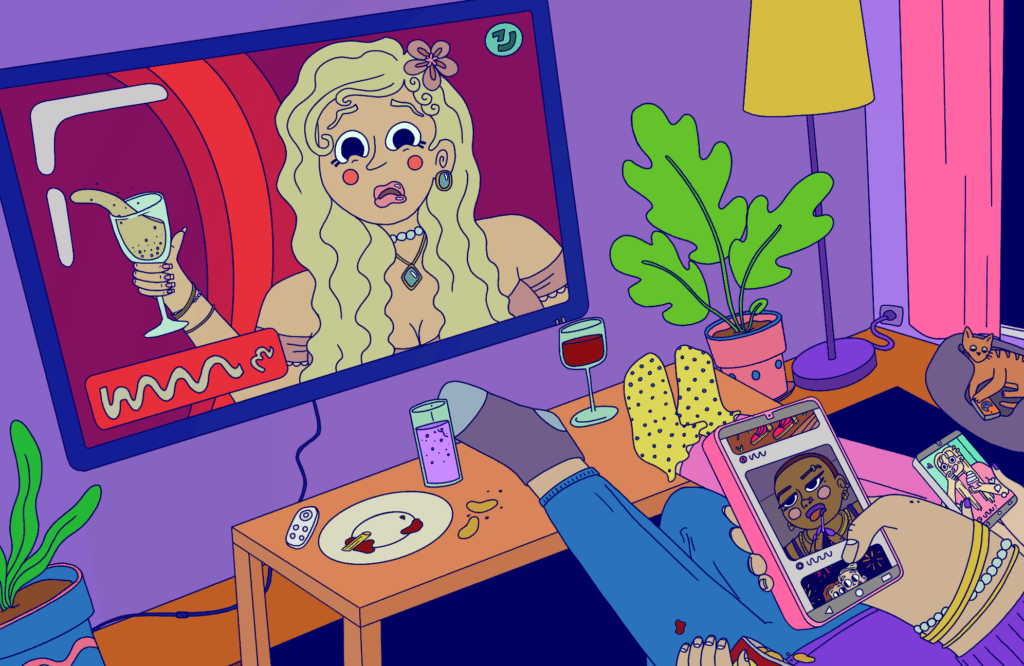Why do we love Temptation Island and Molly-Mae so much?
One episode of Temptation Island, and before you know it, three hours have passed and you’re still on the couch, crumbs on your sweater. We know it’s fake, yet we keep watching. Why can’t we get enough of ‘reality,’ whether it’s on TV or in our Instagram feeds?

Sinking into the couch with a bag of chips, ready for a new episode of Temptation Island: it’s a familiar scene for many. And even if you don’t watch, it’s hard to escape the buzz. Shows like Married at First Sight, Temptation Island, and love is blind dominate not only the screen but also daily conversation.
Where does this love for reality TV come from? And if, while watching, you’re also scrolling through Instagram stories from influencers like Molly-Mae Hague, aren’t you really seeing the same thing? A polished version of reality? What’s it like, for those on the other side of the screen, to turn their lives into a show?
Reality TV as a springboard
According to media expert and associate professor of Culture Studies Tom Van Hout, reality TV is the precursor to today’s digital culture. Influencers and reality TV stars have a lot in common, he says.
‘Some influencers are already famous and attract the attention of major broadcasters. By joining television programs, they strengthen their brand, attract followers, and expand their reach.’
There are also unknown contestants who behave provocatively on TV and end up in the spotlight. They manage to maintain that attention by becoming active on social media after the show.
Reality TV, then, can be a stepping stone. ‘The reality stars of fifteen years ago are today’s influencers,’ says Van Hout. ‘Both are performers in a kind of spectacle that’s always available to us.’
Taking control of your own story
Still, there are clear differences between influencers and reality stars. The biggest one lies in how they turn their lives into a show. Influencers usually work independently or with small teams, while reality TV depends on large productions involving dozens of people.
That means influencers have much more control over how they present themselves and promote their brand, whereas reality stars give up most of that control. Yet even for influencers, life isn’t always easy, says Van Hout. ‘Influencers and streamers live in a constant state of reality TV. They must always be visible, authentic, and available, while both success and failure are completely individualized.’
The illusion of authenticity
Whether they’re influencers, reality stars, or something in between, they all serve us a carefully constructed pseudo-reality. Why are we so drawn to it? ‘Because we can identify with these people,’ says Van Hout. ‘We see the full range of human emotion. Conflict, drama, intrigue – everything is magnified and milked for attention.’
That’s what keeps us hooked. There’s even a scientific explanation: viewers experience affect, an emotional response to what they see, such as fear, anger, or joy. ‘It’s a classic concept from the neoliberal theatre,’ Van Hout explains. ‘It’s all about provoking as much emotion as possible.’ In reality TV, that happens not just every season but every episode.
And so we keep watching. Night after night, sinking into the couch with that same bag of chips. We laugh, judge, and empathize — safely from our living rooms. Because no matter how fake it is, it feels real.






